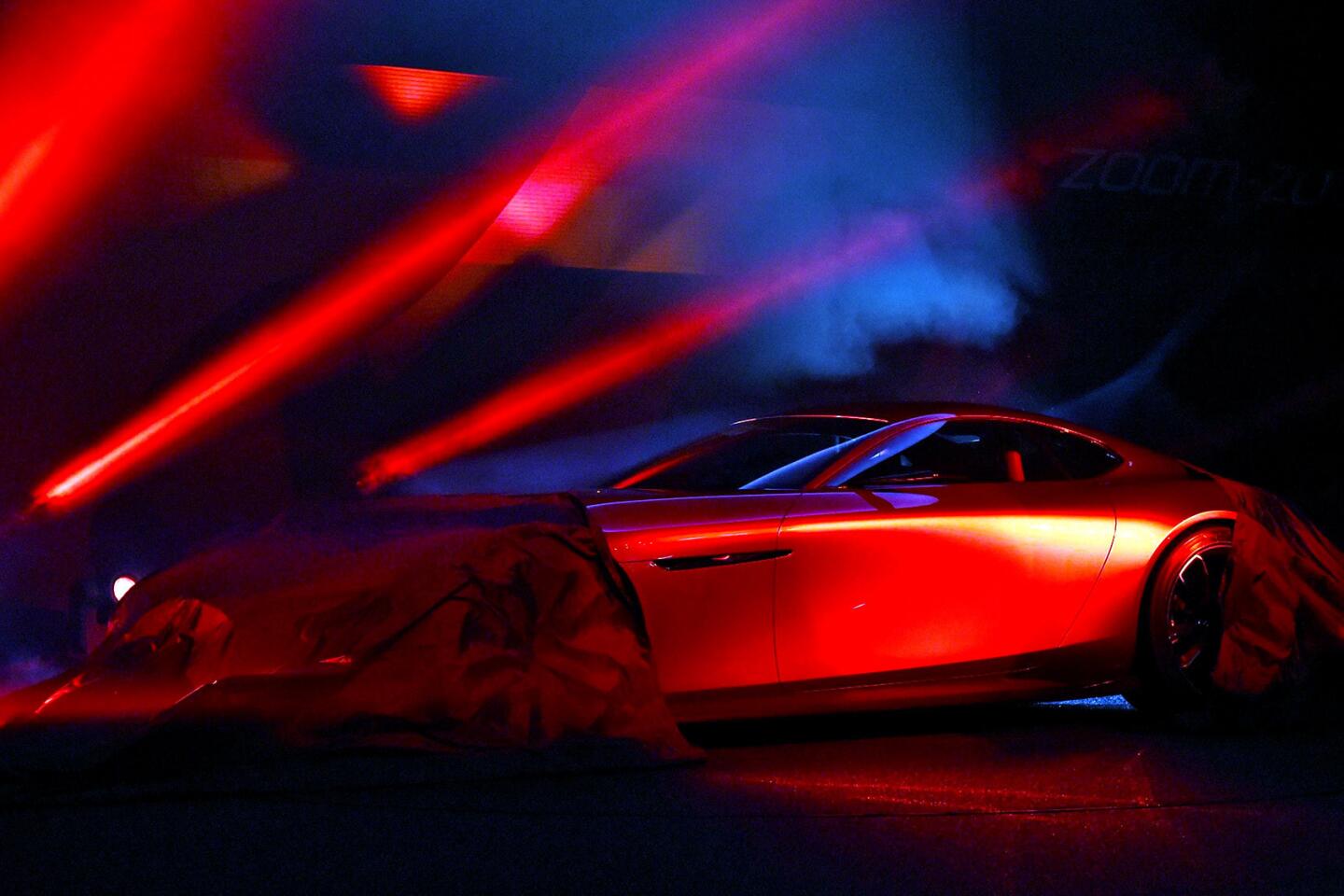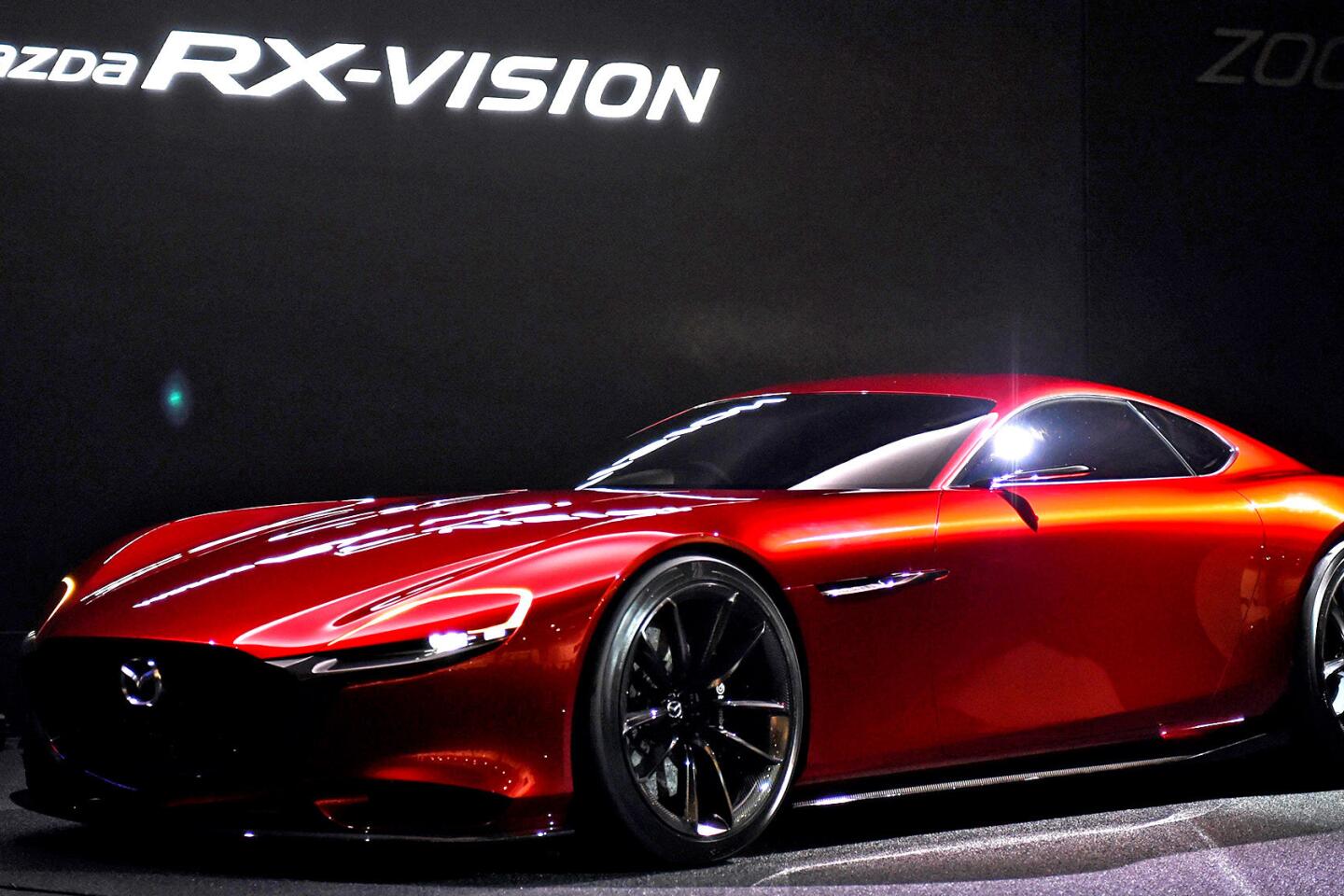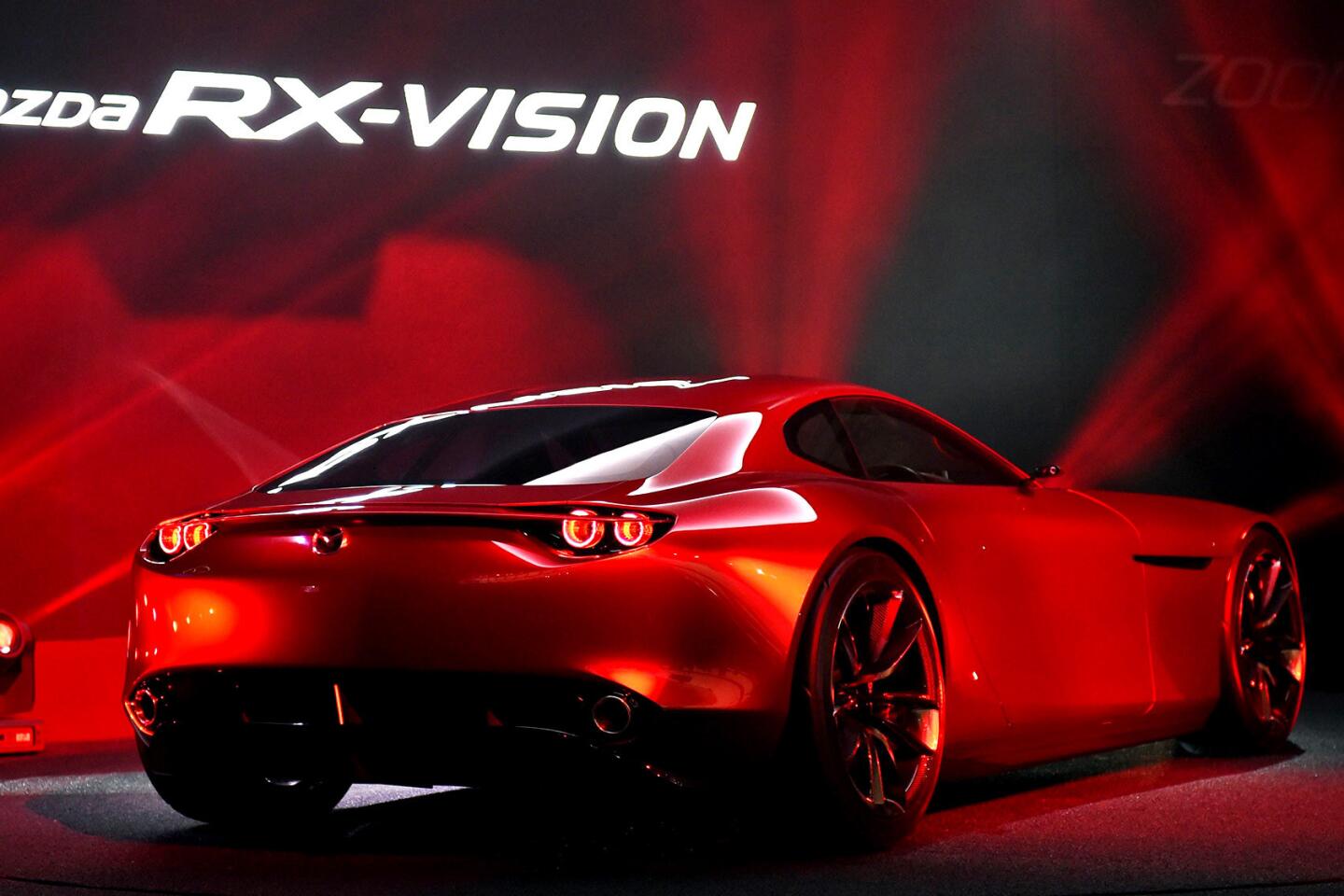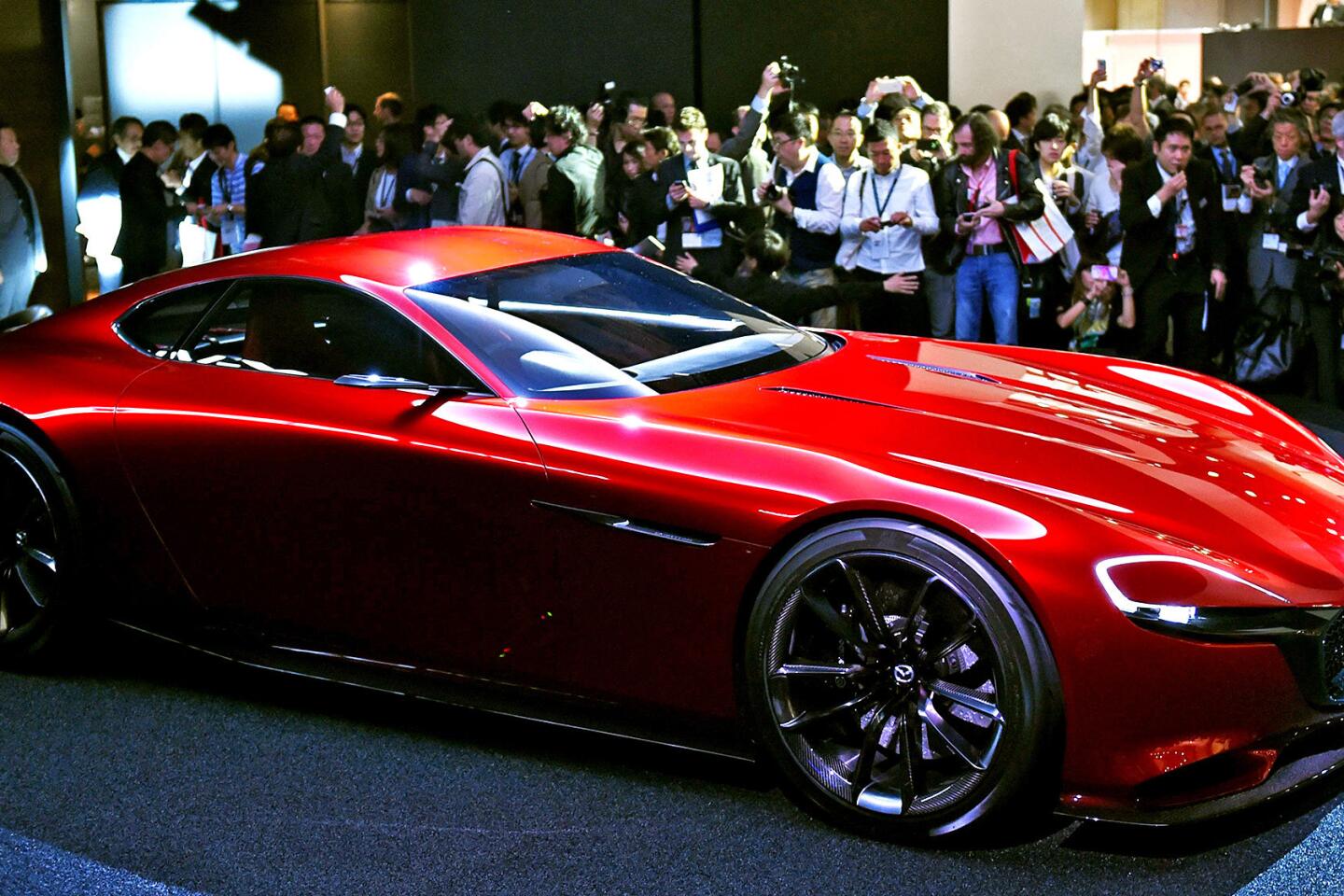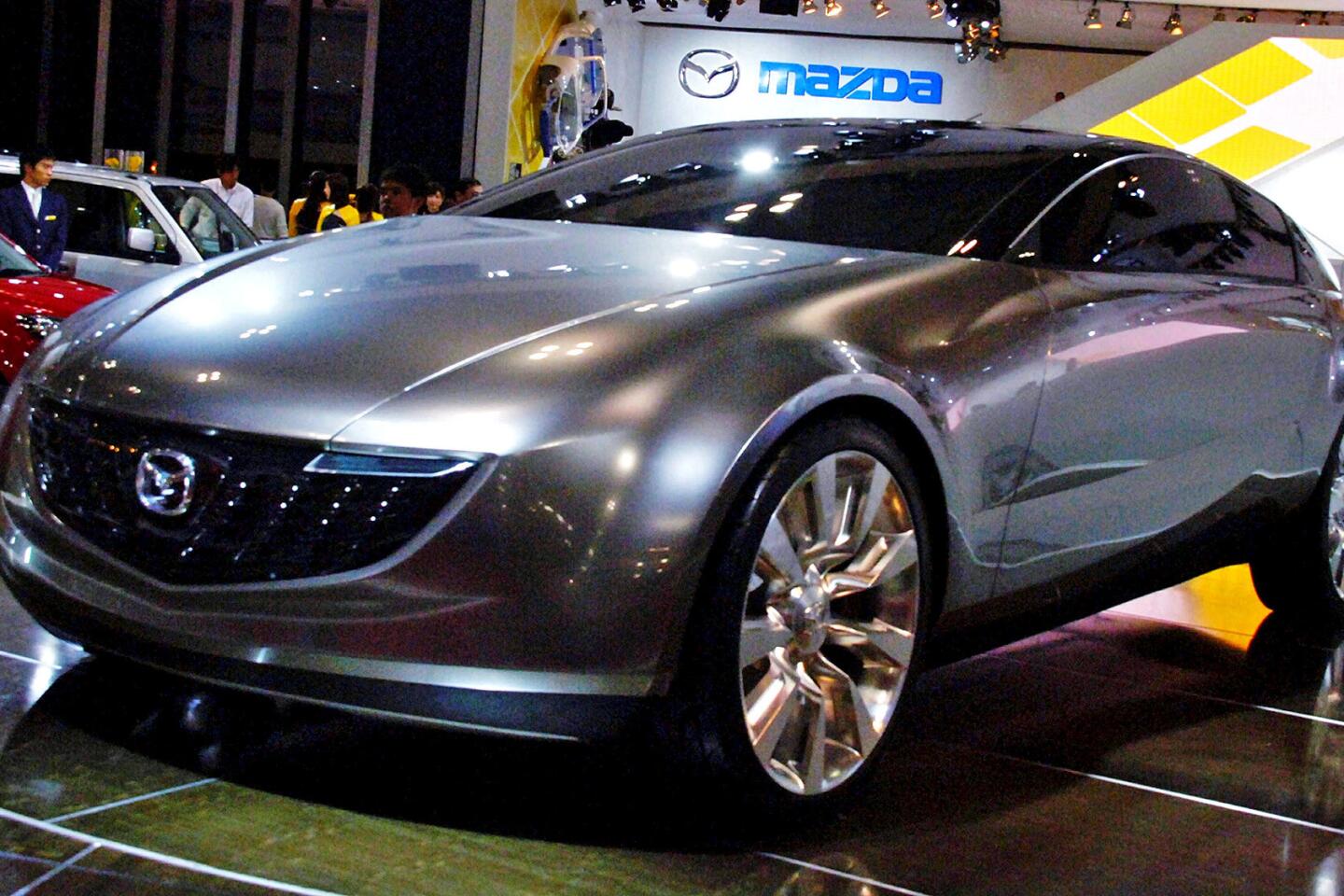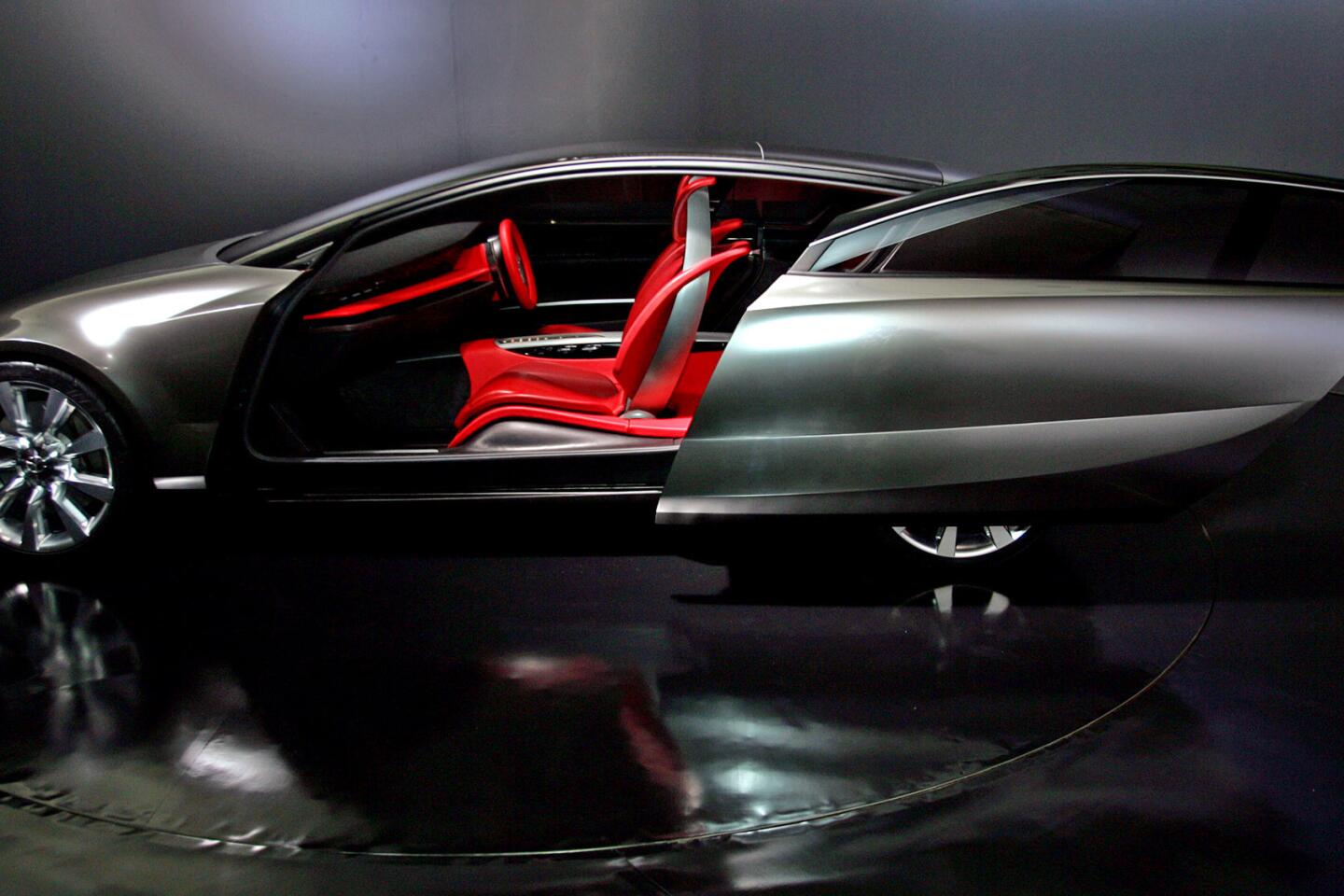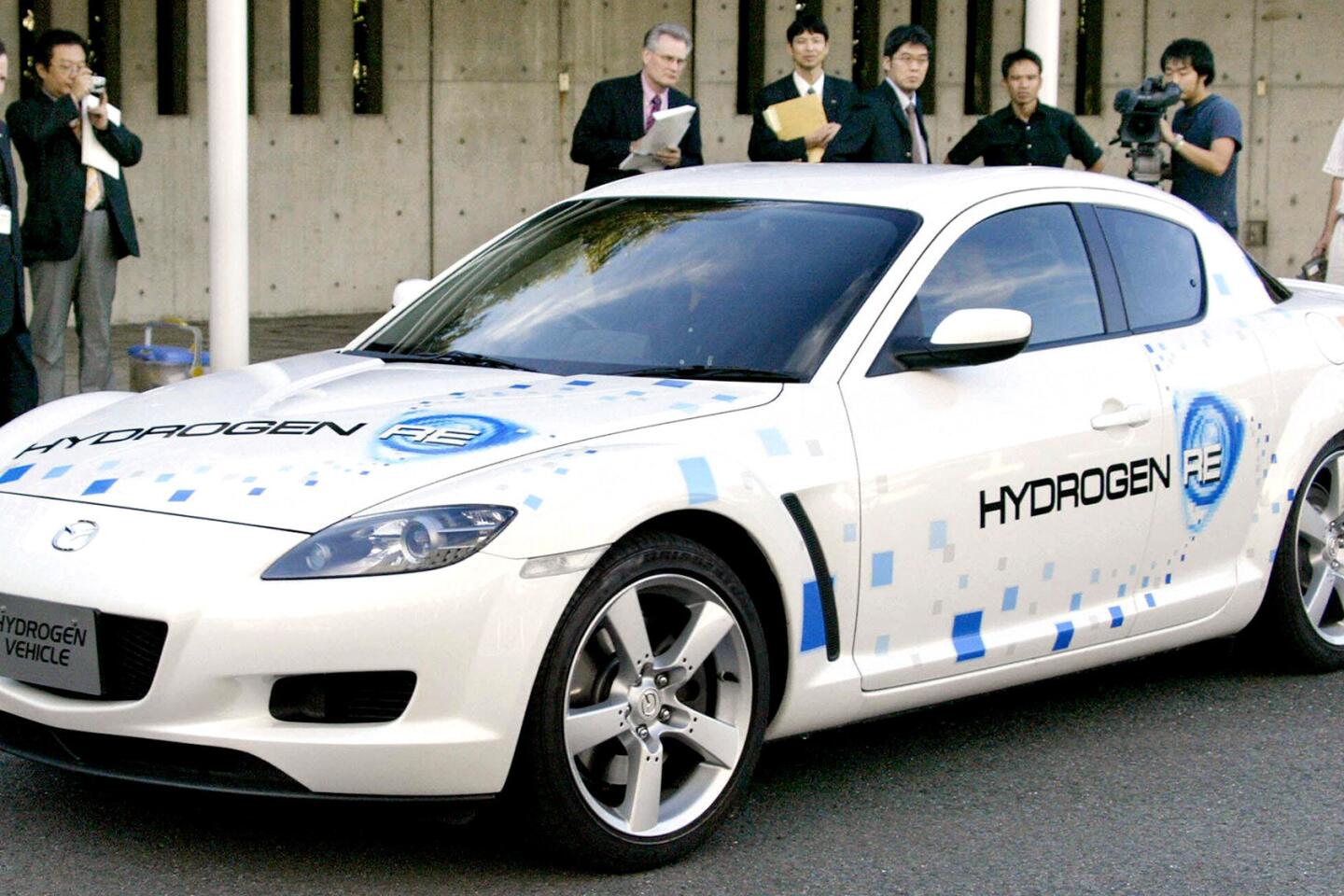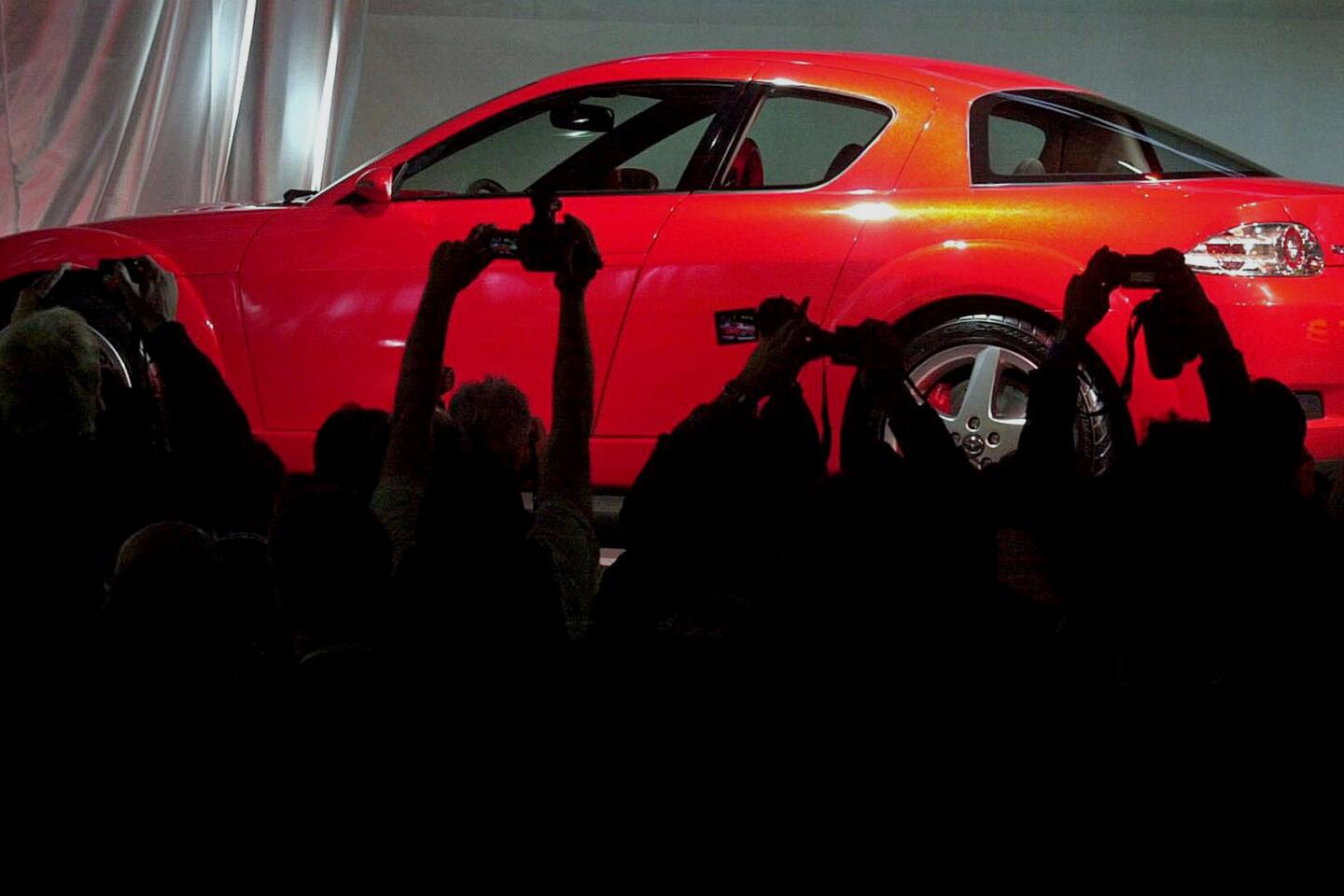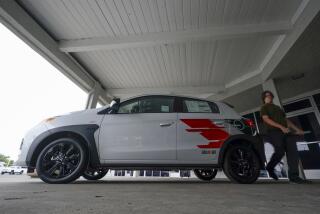Mazda brings back the rotary engine with RX-Vision
- Share via
Mazda Motor Corp. has shaken the dust off its mothballed rotary engine and packaged it into a futuristic-looking sports car with old-fashioned underpinnings.
The RX-Vision, unveiled at the Tokyo Motor Show, is a front-engine, rear-wheel-drive roadster. Stylistically, with its low lines, long hood and short tail section, it owes something to Ferrari and something to Corvette.
The company said nothing about horsepower, torque or availability in making the unveiling.
SIGN UP for the free California Inc. business newsletter >>
But the RX-Vision could be the prescription for a big brother to the recently refreshed Mazda Miata, a small-scale MX-5 roadster that has charmed the auto press with a return to its simple sports car roots.
Mazda brought forth the then-revolutionary rotary Wankel engine in 1963, using the Tokyo Motor Show to unveil a rotary-engine Cosmo. In subsequent years, Mazda put many of the rotary engines in its RX series of sports cars, notably its RX-7, and developed turbo-charged versions putting out impressive horsepower.
The company retired the engine three years ago, when it sent the 2012 RX-8 into dry dock. Since then, the automotive news outlets have blogged periodically about the return of a new rotary-engine sportster, with some authors predicting a 2017 model year vehicle with that power plant.
Mazda executives said last year that the company would launch no new RX without a rotary engine.
The “zoom-zoom” company also used the Tokyo Motor Show to show off a concept crossover vehicle, the Koeru. The five-seater offers what press material called “power, vitality and a new level of polished refinement.”
In other words, it could well be a bigger and more luxurious sibling to the company’s CX-5 and CX-7 SUVs.
ALSO:
Toyota Mirai hydrogen car makes Hollywood debut
Toyota shoves Volkswagen aside, takes global auto sales crown
Voice commands while driving still distracting and risky, AAA study says
